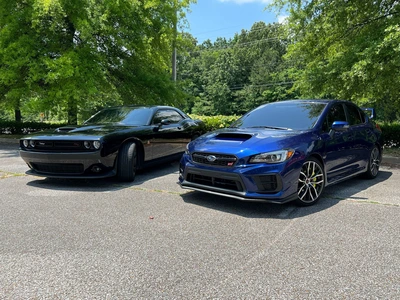When you buy a new car, one of the biggest financial factors to consider is depreciation—the rate at which your vehicle loses value over time. While all cars depreciate, some hold their value better than others. As a new car buyer, understanding what affects depreciation can help you make a smarter, more cost-effective choice. Here's what you need to know to choose a vehicle that stands the test of time.
🚘 What Is Car Depreciation?
Car depreciation is the difference between what you paid for your car and what it's worth down the road. On average, a new vehicle can lose 15–20% of its value in the first year and up to 60% over five years. While this is a normal part of ownership, choosing a car that retains its value well can save you thousands when it's time to trade in or sell.
🧠 Key Factors That Affect Depreciation
If you're aiming to get the most for your money, keep an eye on these key features and traits:
1. Build Quality and Durability
Cars with a reputation for long-term durability and solid construction typically depreciate more slowly. Look for models known for reliability and minimal maintenance issues.
2. Fuel Efficiency
Gas prices may fluctuate, but a fuel-efficient car remains in demand—especially with buyers looking to save money on daily commuting costs.
3. Advanced Safety Features
Vehicles equipped with modern safety technologies—such as lane departure warnings, blind-spot detection, adaptive cruise control, and automatic emergency braking—often hold value longer due to their appeal to a wider audience.
4. Technology and Infotainment
A car with an intuitive touchscreen interface, smartphone integration (Apple CarPlay or Android Auto), and hands-free features typically depreciates less because buyers expect these systems in newer vehicles.
5. Interior Comfort and Quality
Premium interiors with high-quality materials, ergonomic seating, and sound insulation retain appeal over time, especially in higher-mileage cars.
6. Maintenance Costs and Ownership Expenses
Vehicles with lower maintenance costs, fewer mechanical issues, and better warranty coverage tend to be more attractive to used car buyers—helping you command a higher resale price.
🏆 Best Practices to Minimize Depreciation
Here are a few smart steps you can take as a new car buyer to limit depreciation:
-
Buy Smart, Not Flashy – Opt for practicality and value over trendy or niche features.
-
Keep Mileage Low – The fewer miles you drive annually, the higher your trade-in or resale value down the road.
-
Stay on Top of Maintenance – Keeping up with oil changes, tire rotations, and regular service records helps preserve your vehicle's condition.
-
Protect Your Vehicle – Invest in protective features like paint sealant, seat covers, and window tint to keep your car looking new.
💬 Final Thoughts: Choose Value That Lasts
While depreciation is unavoidable, choosing the right car can make a big difference in your long-term ownership experience. Focus on vehicles with strong safety features, lasting reliability, and practical amenities that future buyers will love just as much as you do.
Not sure where to start? Visit me and let me help you explore options designed to hold their value—and drive off with confidence.
Ricardo Sotelo
(662) 804-1084 Homer Skelton Ford











